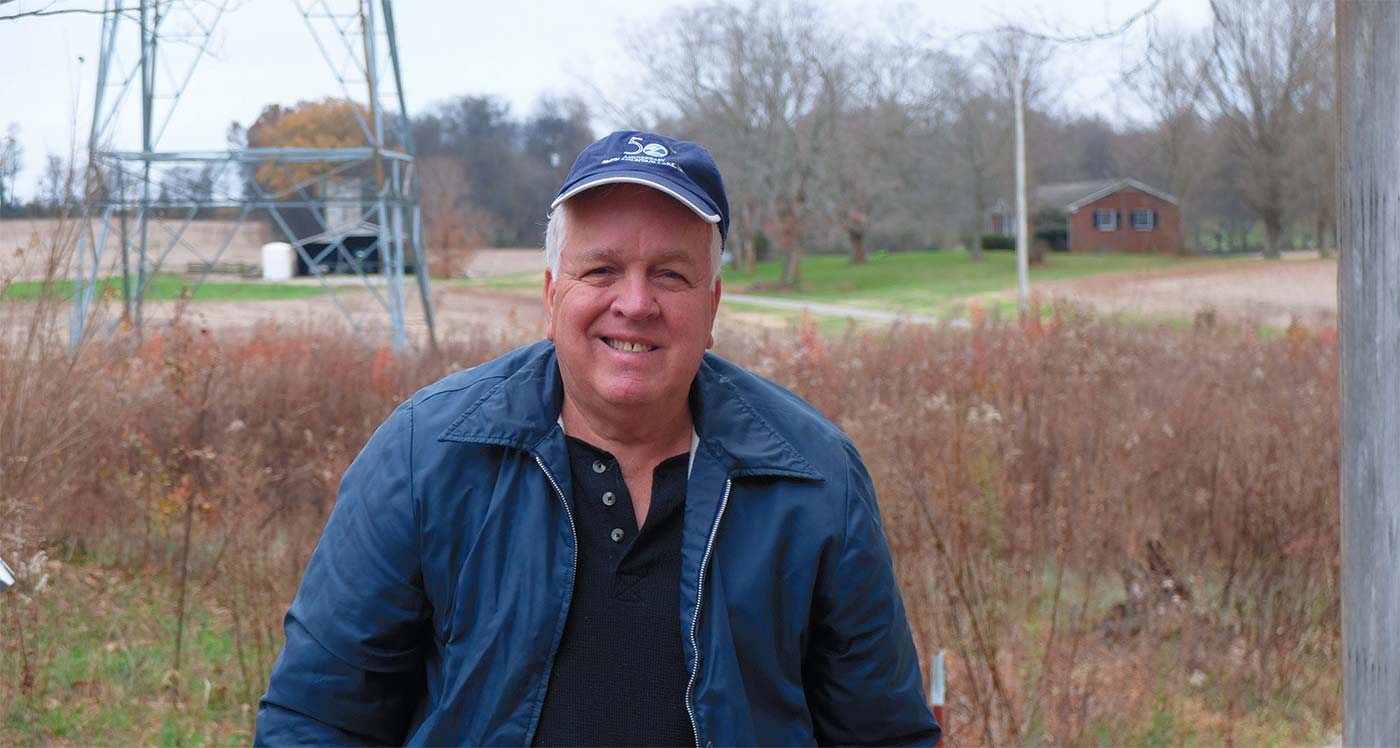Field Notes on Spring from a Farmer & His Daughter
“It’s pretty simple, really. When it gets dry, you grab your shovel, dig a hole and put some seed in,” Daddy says to me as we peruse seed catalogues and turn up his version of coffee –– barely tea in my opinion. My feet are under the kitchen table of the man who in part gave me life.
And for the record for anyone who’s coldhearted enough to ask … yes, I’ll always call him Daddy. Father, Dad or even Pops is just about as fittin’ as wearing two left shoes.
Daddy is one of those men who if asked how to rev up the tiller, you’re likely to be given a litany of instructions to build your very own machine, so as not to be dependent upon another breathing soul. Certainly if the creek rises, his girls will be armed with the necessary knowledge to traverse its fast current long after he’s gone.
That’s how his mind operates. Out of a place of deeply, devoted love.
So, I sip and I savor the moment.
Even in his early years, he looked forward to spring, as he cared about farming and the land. “I enjoyed farming, because I was able to do my own thing, see things grow and make things better –– different than how things once were. I felt an achievement.”
He raised tobacco, corn and wheat along with dairy cattle even in early adolescence. During the winter he and his brothers would plow the ground when it was dry enough. Come spring they would plant what would eventually become part of their family’s income. The wheat was already in the ground, as they would have sown those fields the fall prior. It was the other crops that required a bit of prep work ahead of the songbirds and buzzing bees.
As for his cattle, they’d bed down in straw during winter months that leant to a thorough good old spring cleaning upon winter’s thaw. The bedding would essentially be scattered on the cultivated portion of nearly 110 acres. Though the herd couldn’t be turned onto the fields quite yet. It was those fragrant, yet pesky spring onions that could ruin a farmer’s milk supply quicker than a pan of self-rising biscuits could puff up in a warm oven.
Somehow, I’m thinking the cream of onion soup most mamas used for Sunday casseroles might’ve taken on a whole new meaning with the roughly 1,100 gallons of milk per day that Daddy’s dairy produced. But, what do I know? At 47 years of age, I am and always will be the family’s baby. I thank my lucky stars every night for that esteemed honor.
Lots of talk about soil content, amendments and balanced converge. I well up with tears when he throws his quintessential side-cocked grin and says, “Spring means I’m not going to get to do it anymore. Sometimes I see guys out farming and think I miss that, but I’m sure glad I don’t have to do it anymore.”
It’s that “get to” part still resonating with my heart.
He continues, “I guess spring, for me, means the smell that dirt has on a warm night when it’s sort of wet after turning it over. It makes you really want to get out there and go to work. It’s one of those things that once you’ve experienced it, you don’t get it out of your blood.”
Back in the day, he and neighboring farmers would swap work and equipment through the year. And spring was no exception. It was quite the family, those mid-century, Montgomery County farmers. Sure, they fussed about how so-and-so didn’t do this or that a certain way. Even still, when it came down to the brass tacks of things, it took the whole honest-to-goodness village.
“When you live on a hope and a dream, you hope what you’re doing has a purpose for not only yourself but others. We are all in this living thing as partners. When one of the partners goes astray, it hurts everyone. When we do good, we’re all better off for it,” Daddy explains. He contends that modern day kids’ proverbial hands might actually heal a bit if they’d start digging in their fair share of dirt, as opposed to the copious amounts of screen time spent gaming and texting. Indeed, I’m a big fan of this logic as well. While his and my opinions may occasionally diverge on certain subjects, the man’s got game when it comes time to debate. Daddy has always warned me of complacency. But, as the roosters crow and the balmy February breeze blows through the kitchen door, I realize where he’s coming from, now more than ever.
My parents are relishing in their golden years these days. They still get a little kick out of my reference to Daddy’s remaining tractor as vintage or antique. He bought that old John Deere 1010 brand new many moons ago as he and Mamma set out to do life ––together. By golly, John’s got plenty of rows left to plow and we’ve more than a few new memories yet to make.
“I guess spring, for me, means the smell that dirt has on a warm night when it’s sort of wet after turning it over.”
- Melissa’s Daddy, Richard Corbin
In pure Richard Corbin form, let’s just say that Daddy’s tips for the backyard gardener are more than a brief tweetable moment:
ME: What should people do to prepare the beds for spring planting?
DADDY: Preparing for spring should have started the year before. Get ya a cow and let the manure turn over the soil.
ME: What about pests?
DADDY: Don’t get discouraged because the bugs eat your plants. Try to figure out why they’re eating them. Was there a host crop beside it? Could you have gotten rid of them earlier on? Learn from your failures. If you can’t learn or achieve from them, go for something else.
ME: All I want is a little kitchen garden of tomatoes. Let’s just do that.
DADDY: If all your eggs are in one basket and you stub your toe … all your eggs will break.
ME: But, I read somewhere …
DADDY: This is not rocket science. It’s good common sense. Make sure that you’ve seen the crops of the person you’re listening to before you even pick up your shovel.
FINALLY, DADDY’S 5 HELPFUL HINTS FOR YOUR SPRING GARDEN
- Turn the ground as early as possible, yet avoid working it while it’s wet.
- Soil test your plot and amend accordingly.
- Be patient. Allow time for the amendments to work and for the ground to sufficiently warm.
- When it comes time to plant, work the ground a second and maybe third or fourth time to make sure the soil is loose with no clods or rocks.
- Sow your seed at the proper distance and depth. You’ll need to choose a new garden spot every two years, especially if you have problems with pests and/or fungus.
While we’re still going on about those eggs, us Corbins wish you happy planting and a fruitful spring!




